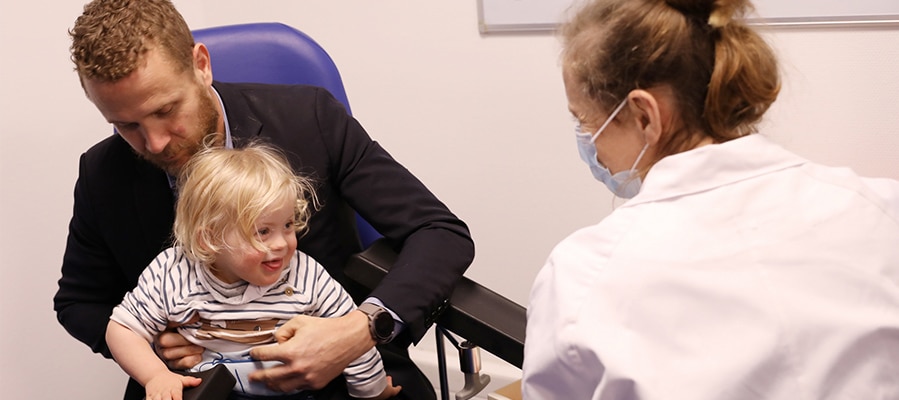The research programs conducted at the Institute aim to identify the mechanisms involved in intellectual disabilities of genetic origin to help with their diagnosis, their prevention, their management and the development of new treatments. In order to better understand the complexity of these cellular mechanisms and the pathways involved, the Institute began a new research project – Colibri – in late December.
Purpose of the study
This study is conducted on monozygotic twins (from the same egg), aged 4, one of whom has Trisomy 21 and the other does not, as well as on 3 other young children who have or do not have Trisomy 21.
It will allow studying the genetic and epigenetic (i.e. the study of changes in gene activity) variations as well as the cellular mechanisms involved in intellectual disabilities. It will therefore allow identifying new research paths.
This project will also allow BRC-BioJeL to work on the generation of induced pluripotent stem cells (iPSCs) from blood cells and even skin cells. These cells have the unique ability to transform into a variety of cell types that make up the human body (neuronal, muscular, cardiac cells…). As such, they represent a rare and precious research model that will allow later testing of new therapeutic molecules for people who have Trisomy 21.
How is the study conducted?
The participants will attend a baseline visit, which will include a medical check-up, a neuropsychological assessment as well as biological sampling. A second visit – based on the same model – will be scheduled 5 years after the baseline visit.
For the purpose of the Colibri study, the children will all be monitored for a period of 5 years.

